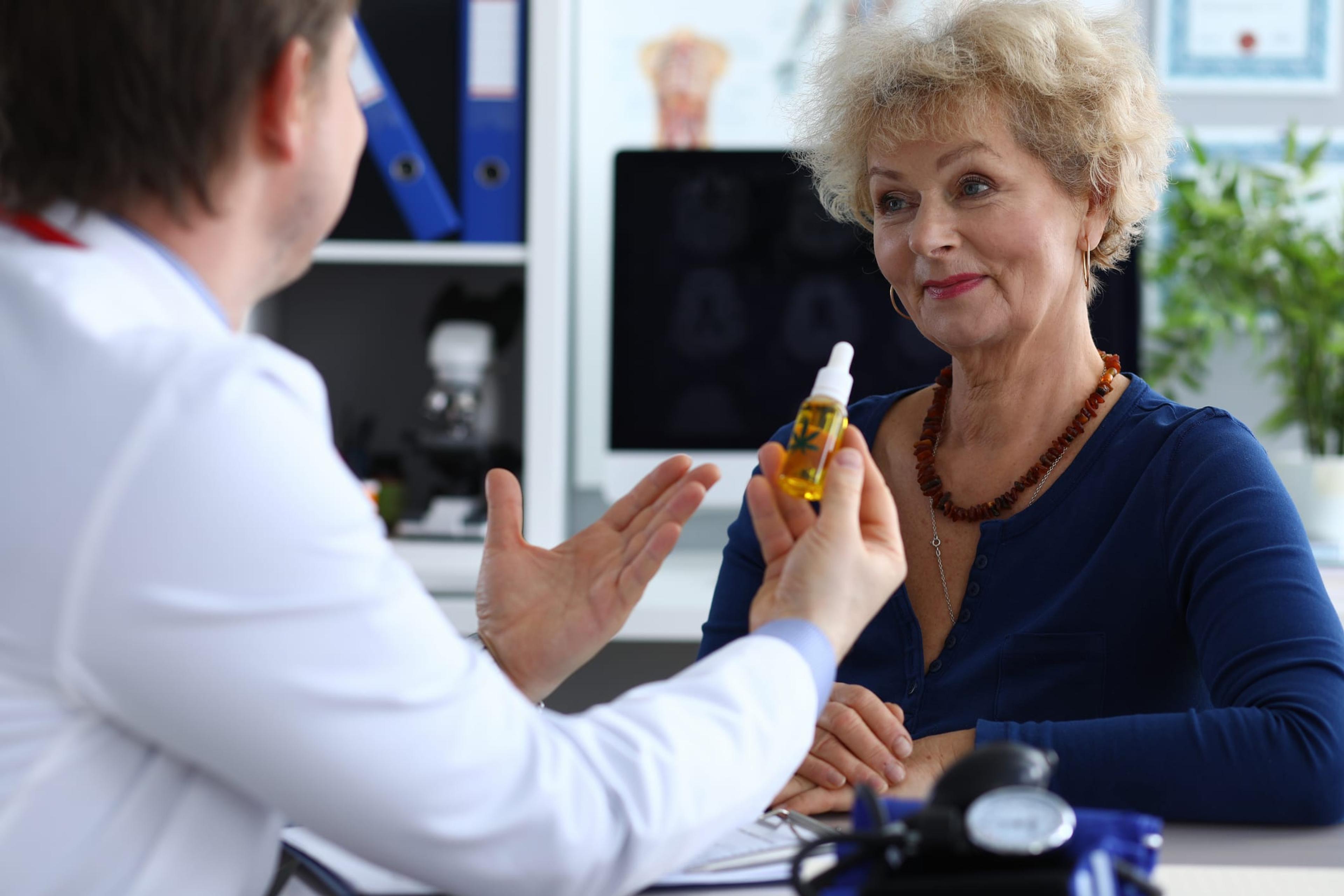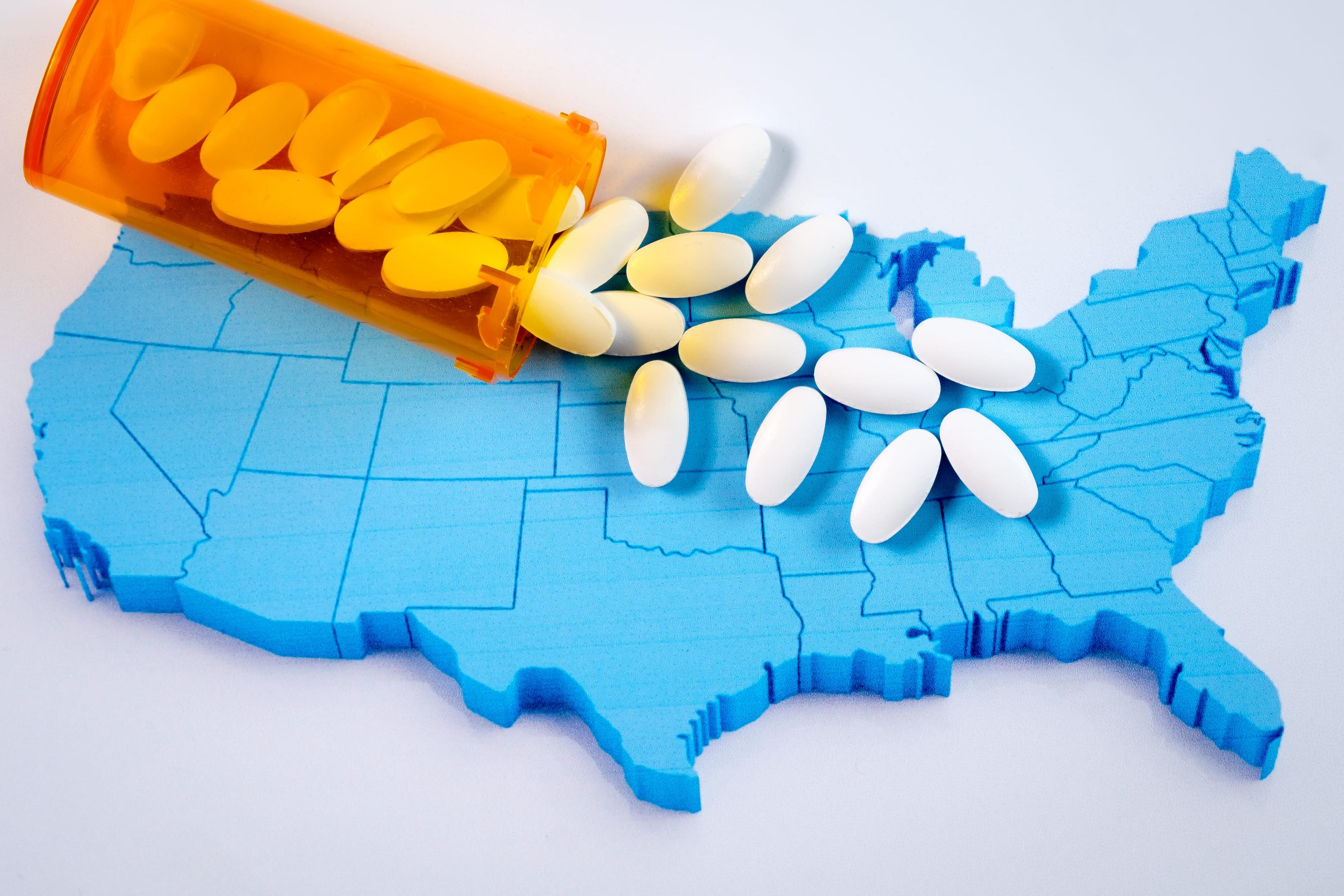CBD-Curious? Why You Need to Talk to a Medical Professional First
Amy Barczy
| 3 min read
Amy Barczy is a former brand journalist who authored content at Blue Cross Blue Shield of Michigan. Prior to her time at Blue Cross from 2019-2024, she was a statewide news reporter for MLive.com. She has a decade of storytelling experience in local news media markets including Lansing, Grand Rapids, Holland, Ann Arbor and Port Huron.

From gas stations to grocery stores, CBD products have exploded onto the market – but have little science or regulation to back them up. While CBD products are advertised and marketed as cure-alls for a variety of issues from anxiety to insomnia and depression to curing cancer and treating Alzheimer’s disease, there is no scientific support for those claims. If you are considering trying a CBD product, talk to your primary care provider or pharmacist first – especially if you are on a medication regimen. Your medications may have negative interactions with CBD products that could pose a significant risk to your health.
What is CBD?
CBD stands for cannabidiol, a chemical extracted from the cannabis plant. It can be used as an oil or infused into a variety of products including gummy candy, lotion, lip balm, water and bath salts. A cannabis plant with 0.3% THC or less is considered a hemp plant – which is legal in the U.S. and where CBD typically comes from. A cannabis plant with more than 0.3% THC is legally considered a marijuana plant and is subject to strict regulations in Michigan and is still illegal federally. THC is the active chemical that gives marijuana its trademark high. Hemp and its derivatives are legal in the U.S. as a result of the 2018 Farm Bill. However, CBD products are unregulated by the U.S. Food and Drug Administration – leaving opportunity for manufacturers to cut corners and make false claims. For example, there is potential for a CBD product to contain THC, dangerous chemicals, heavy metals and more or less CBD than advertised – which could be harmful to consumers, especially if they are on an established medication regimen. Only one CBD drug has received approval from the FDA – Epidiolex – which is used on a prescription basis to treat two rare forms of pediatric epilepsy.
Why should I talk to my doctor first?
CBD products have the potential to harm you even before you become aware of it. There is a risk of liver injury from ingesting CBD oil or other products, as the liver is the main organ responsible for metabolizing and processing CBD. Additionally, during clinical trials Epidiolex was shown to cause liver injury. There also could be serious side effects if you are taking other drugs at the same time. The FDA advises combining CBD with alcohol or other drugs that slow brain activity – like those that treat anxiety, panic, stress or sleep disorders – increases your risk of sedation, which could lead to injuries. There are many things about CBD that are still unknown to the scientific community, including:
- What are the long-term effects of taking CBD daily?
- What’s the threshold for risks from CBD?
- How does orally taking CBD compare to smoking, vaping or using a topical CBD product?
- How does CBD affect children, a developing fetus or a breastfed newborn?
- Does CBD damage fertility in men, as has been reported in studies of animals exposed to CBD?
Are topical CBD products safer than CBD oils or gummies?
While topical CBD products will not enter the bloodstream, it does not mean they are risk-free. Other ingredients in the product may cause irritation – and the products are not subject to the FDA’s quality controls, which could put you at risk. The FDA has tested some products and found many did not contain the level of CBD that they claimed. Investigations are also under way into reports that some CBD products contained unsafe levels of contaminants like pesticides and heavy metals. More from MIBluesPerspectives.com:
- Ways to Keep Track of Your Prescriptions
- Drug Adherence Discount Program Helps Save Money
- Electronic Prescriptions Continue to Rise, Fueled in Part by Wider Use of Telemedicine
Photo credit: Ivan-balvan





